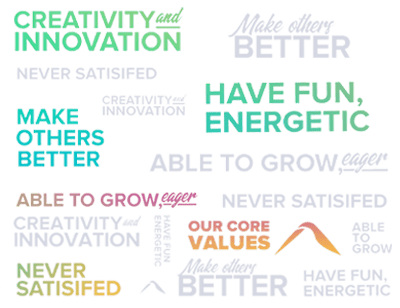The B2B landscape is changing rapidly. Technology is moving to customize businesses in new ways. Companies embracing these changes may be ahead of the competition. From artificial intelligence to cyber security progress, the business industry is changing its operations to keep pace with the demands of the industry.

Businesses are now creating strong relationships with their customers and providing them with personal experiences. They use data and analytics to understand their customers and make informed decisions.
Six major B2B trends will shape the sector in 2025.
1. AI and Machine Learning for Process Automation
Artificial Intelligence and Machine Learning B2B are revolutionizing. Companies are using these techniques to automate workflows. Decisions are becoming more data-making. AI-driven automation helps businesses to handle repetitive tasks. It allows employees to focus on strategic automation tools.
- Chatbots and Virtual Assistant: AI-interested Chatbot improves customer service. They provide real-time support and increase the response time. Around 58% of B2B companies currently use a chatbot on their website. It’s estimated that businesses will invest $4.5 billion in chatbot technology by next year.
- Predictive Analytics: AI helps businesses analyze data patterns. It allows companies to predict demand and optimize pricing.
- Marketing automation: AI-operated equipment personalizes marketing campaigns. It increases the engagement and conversion rate.
B2B companies can reduce costs by adopting AI and machine learning. Productivity will improve. The decision will be more efficient.
2. B2B e-commerce and digital marketplace emergence
Digital commerce is changing how to buy and sell businesses. Online platforms are becoming a favorite option for purchase. B2B companies are transferring to the digital marketplace. 80% of B2B sales interactions between suppliers and buyers will occur through digital channels — a trend that gained considerable momentum during the pandemic.
- Experience to buy self-service: Today’s buyers like to do online research and shopping. Therefore, digital media are essential to integrate within the B2B scenarios.
- Integration with ERP and CRM systems: Digital platforms are here with back-end systems. These are progressive tools to aid B2B organizations in storing the data. They analyze data for management systems.
- Privatization and AI-Inaccurate recommendations: Advanced algorithms regulate products based on customer needs.
E-commerce will dominate the B2B transactions. Businesses should invest in digital changes to remain competitive.
3. Blockchain for increased transparency and safety
Blockchain technology is a crucial part of the B2B trend. It increases transparency and security in transactions. Decentralized and tampering-proof records ensure confidence in business behavior.
- Supply chain management enables blockchain traceability. It reduces fraud and improves the product authenticity.
- Automatic agreements ensure compliance. Transactions become faster and more secure. Blockchain-based payments reduce the risk of fraud.
- A major B2B trend is to increase digital platforms for everything from sales to customer relationship management, affecting B2B collection with online portals, automatic invoice delivery, and digital payment options, which are becoming more prevalent.
Safety and transparency are priorities for B2B companies. Blockchain will continue to be adopted.
4. Cyber security and data privacy compliance
Cyber threats are increasing. B2B outfits should protect their system. Customer data security is necessary. This approach requires verification at each stage of digital interaction.
- Machine Learning algorithms analyze large amounts of data to detect cybercrime. Identification of patterns and anomalies helps prevent cyber attacks before damage. This active approach strengthens cyber security, reduces risk, and increases protection against dangers such as malware, fishing, and ransomware.
- Businesses should follow the GDPR and CCPA rules. These are government-embedded guidelines for customer privacy protection.
- It is to invest in cyber security. Protecting sensitive information ensures business continuity. When cybercriminals find the vulnerable, it is easy for them to break into the process. To safeguard the system from malware attacks, data security is essential.
5. IOT for Smart Business Operations
The Internet of Things B2B is changing operations. Connected devices collect real-time data. The process is improving automation efficiency.
- Censors optimize inventory management and logistics.
- IOT-Competent Machinery predicts failures before it is a competent machinery.
- Businesses track the performance of equipment in real-time.
IoT helps companies reduce costs. Efficiency is increasing. New service models are emerging.
6. Extension of 5G and Edge Computing
Rapid connectivity B2B operations are changing. The 5G and Edge Computing enable businesses to process rapid data. It reduces dependence on centralized cloud systems.
- Real-time analytics improves decision-making.
- Teams can cooperate.
- Real-time monitoring increases efficiency in manufacturing.
Since these technologies will unlock new opportunities for developed businesses, they will improve efficiency and increase customer engagement.
Why Do You Need B2B Technology?
The B2B trend is for businesses that want to grow and stay ahead in a competitive market. It helps to create processes that protect time and resources. Companies can make better decisions using real-time data and insights that improve productivity.
Strong customer relationships are spontaneous digital communication. Security is also a concern; advanced technology proves that sensitive data is safe from cyber threats. As industries develop, businesses should adapt and embrace digital devices with innovation and long-term success. Investing in B2B technology is no longer an option for companies that want to scale growth in the modern business world.
Conclusion:
The B2B landscape is developing. Companies embracing digital changes will benefit. AI-driven automation blockchain security IOT and 5G connectivity will run successfully. Businesses should remain agile. They need to be compatible with technological progress. Those who invest in innovation will grow rapidly in the digital world.




